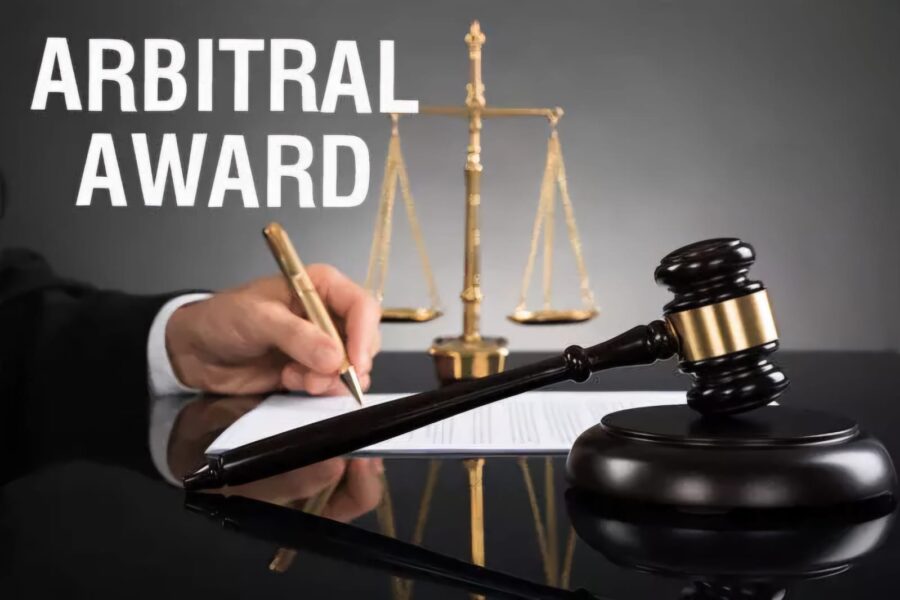Introduction
Arbitration is a widely used mechanism for resolving disputes outside traditional courts. It offers parties a neutral and efficient means of dispute resolution, often providing a final and binding decision known as an arbitral award. However, while arbitral awards are generally respected and enforced, courts in various jurisdictions have limited powers to modify them under specific circumstances.
This article explores the nature of an arbitral award, its binding and enforceable characteristics, and the extent to which courts can modify such awards.
What is an Arbitral Award?
An arbitral award is the final decision made by an arbitrator or an arbitral tribunal in an arbitration proceeding. It serves as a resolution to the dispute submitted by the parties and is legally binding upon them. An arbitral award can cover a wide range of remedies, including monetary damages, specific performance, or declaratory relief.
Key Features of an Arbitral Award
- Binding Nature
- Arbitral awards have legal force and must be complied with by the parties.
- Failure to comply can lead to court enforcement actions, similar to a judicial judgment.
- Finality
- In most cases, arbitral awards are final and cannot be appealed, except under rare circumstances like fraud, procedural irregularities, or jurisdictional errors.
- Forms of Awards
- Final Award – Completely resolves the dispute and terminates the arbitral process.
- Interim Award – Deals with preliminary issues before a final decision.
- Consent Award – Based on a settlement mutually agreed upon by the parties.
- Partial Award – Resolves only a part of the dispute, leaving other issues pending.
- Enforceability
- National laws and international treaties, such as the New York Convention (1958), govern the recognition and enforcement of arbitral awards.
- Modification & Challenge
- Courts have limited power to modify arbitral awards, usually under specific statutory grounds.
Power of Courts to Modify an Arbitral Award
Courts generally respect the autonomy and finality of arbitral awards. However, under exceptional circumstances, courts may have the power to modify, correct, or remit an award back to the arbitral tribunal.
Limited Power of Modification
Most arbitration-friendly jurisdictions impose strict limitations on court intervention to uphold the integrity of arbitration. Courts typically cannot rewrite or reassess an arbitrator’s findings but may modify an award under narrow statutory grounds.
Grounds for Modification
Courts may modify an arbitral award in cases involving:
- Evident Miscalculation of Figures or Material Mistake
- If an arbitrator makes an arithmetical error in calculating damages, courts may correct the error without altering the substantive reasoning.
- Award on a Matter Not Submitted for Arbitration
- If the arbitrator rules on an issue outside the scope of the arbitration agreement, courts may remove that portion of the award.
- Ambiguity in the Award
- If an award is unclear or inconsistent, courts may modify it to clarify the arbitrator’s intended decision.
- Violation of Public Policy or Legal Errors (in Some Jurisdictions)
- Some jurisdictions permit limited court review for serious legal errors or violations of public policy.
Legal Frameworks Supporting Modification
Different legal systems define the scope of court intervention in arbitral awards. Some key frameworks include:
- UNCITRAL Model Law on Arbitration (Articles 33 & 34)
- Provides grounds for correction, interpretation, and limited modification of awards.
- United States: Federal Arbitration Act (FAA, Section 11)
- Allows modification for evident miscalculation, matters not submitted to arbitration, or imperfections in form.
- India: Arbitration and Conciliation Act, 1996 (Sections 33 & 34)
- Courts may modify awards under limited circumstances, though they often favor setting aside rather than modifying.
- United Kingdom: Arbitration Act 1996 (Sections 68 & 69)
- Allows modifications for serious irregularity or appeals on points of law in limited cases.
Difference Between Modification and Setting Aside
It is essential to distinguish between modifying and setting aside an arbitral award:
- Modification refers to adjusting specific parts of the award without invalidating it entirely.
- Setting Aside (Vacating) means nullifying the entire award due to a fundamental flaw.
Courts generally prefer modification over annulment when a minor correction can preserve the award’s enforceability.
Procedural Aspects of Modification
- Requests for modification must be filed within a specific time frame after the award is issued.
- Courts may remit the award back to the arbitrator for corrections rather than modifying it themselves.
- In some jurisdictions, parties can agree in advance on court intervention mechanisms in their arbitration agreement.
Challenges in Court Modification of Arbitral Awards
While court modification of arbitral awards is theoretically possible, several challenges arise:
- Limited Judicial Oversight
- Courts in arbitration-friendly jurisdictions are hesitant to interfere, limiting modification to procedural errors.
- Party Autonomy vs. Judicial Authority
- The essence of arbitration lies in party autonomy, and excessive court intervention undermines this principle.
- Cross-Jurisdictional Variations
- While some legal systems permit broader judicial review, others restrict court powers significantly.
- Risk of Delayed Enforcement
- If courts frequently modify awards, it may lead to prolonged disputes and delay enforcement.
Conclusion
Arbitral awards represent the final and binding resolution of disputes in arbitration. While courts respect their autonomy and enforceability, they retain limited powers to modify awards under specific conditions, such as clerical errors, jurisdictional overreach, or ambiguity.
Different jurisdictions have varied approaches to court intervention, with arbitration-friendly systems emphasizing minimal modification. The balance between party autonomy and judicial oversight remains a crucial aspect of international arbitration, ensuring efficiency while safeguarding fairness.
As arbitration continues to evolve, courts will likely maintain their restrictive approach to modification, upholding the fundamental principles of arbitration while ensuring awards remain legally sound and enforceable.

